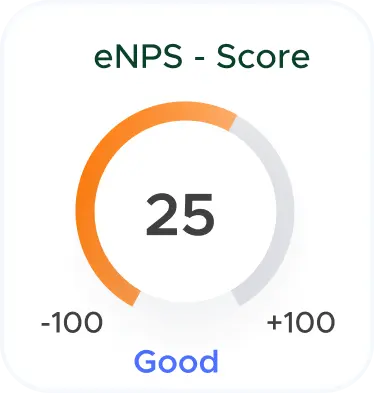✨ لا تفوت الفرصة! سجل في ندوة تقدير الموظفين عبر الإنترنت المقرر عقدها في 29 فبراير. 🎖️
✨ لا تفوت الفرصة! سجل في ندوة تقدير الموظفين عبر الإنترنت المقرر عقدها في 29 فبراير. 🎖️
سجل الآن
Equity-based compensation is typically subject to vesting schedules, which means that employees do not immediately own the full value of their equity. Instead, they gradually earn ownership over a period of time or based on certain performance milestones. This is done to encourage employee retention and to ensure that employees remain committed to the company's long-term success.
Equity-based compensation can be a valuable tool for attracting and retaining top talent, especially in industries where competition for skilled employees is fierce. It provides employees with a sense of ownership and a direct stake in the company's success, which can be a powerful motivator. Additionally, equity-based compensation can help align the interests of employees and shareholders, as both parties have a vested interest in the company's performance.
Equity-based compensation is a type of remuneration that companies offer to their employees in the form of ownership. It is a way for companies to give their employees a stake in the company's success, aligning their interests with its long-term growth and profitability. Equity-based compensation can take various forms, such as stock options, restricted stock units (RSUs), and employee stock purchase plans (ESPPs).
Equity-based compensation programs can be implemented in a variety of business settings, ranging from startups to established corporations. While the specific implementation may vary depending on the type of business and its stage of growth, equity-based compensation can be a valuable tool for companies of all sizes and industries.
Startups, in particular, often use equity-based compensation to attract and retain top talent in a highly competitive job market. By offering employees the opportunity to become shareholders in the company, startups can provide a compelling incentive for employees to join the company and contribute to its growth. Equity-based compensation can also help startups conserve cash in the early stages when they may not have the financial resources to offer competitive salaries.
Equity-based compensation can also be found in established corporations. These companies may use equity-based compensation as part of their executive compensation packages to align the interests of executives with the long-term success of the company. By offering executives equity in the company, corporations can incentivize them to make decisions that are in the best interest of the company and its shareholders.
In publicly traded companies, equity-based compensation is often in the form of stock options or RSUs, which allow employees to benefit from the appreciation in the company's stock price.
In privately held companies, equity-based compensation can take the form of stock options or phantom stock plans, which provide employees with a share of the company's value without actually owning company stock.
The reasons why equity-based compensation is important for employee motivation and retention are:
Equity-based compensation gives employees a sense of ownership in the company. When employees own a stake in the organization, they are more likely to feel personally invested in its success. This alignment of interests between employees and shareholders can foster a stronger sense of commitment and motivation to work towards common goals.
Equity-based compensation offers employees the opportunity to share in the company's financial success and participate in its growth over time. As the value of the company increases, the value of employees' equity holdings also grows, potentially leading to significant financial rewards. This potential for financial gain can serve as a powerful incentive for employees to perform well and contribute to the company's success.
Equity-based compensation typically vests over time, meaning that employees must remain with the company for a certain period to fully realize the value of their equity awards. This structure encourages employees to take a long-term perspective and invest in the company's future rather than focusing solely on short-term results. It also incentivizes employee retention, as employees have a vested interest in staying with the company to maximize the value of their equity holdings.
Equity-based compensation can be an effective tool for retaining top talent, particularly in competitive industries where skilled employees are in high demand. By offering equity awards as part of the compensation package, companies can provide employees with a compelling reason to stay with the organization and resist the temptation to pursue opportunities elsewhere. This can help reduce employee turnover and the associated costs of recruiting and training new employees.
Equity-based compensation can also be a valuable tool for attracting top talent to the company. In addition to competitive salaries and benefits, equity awards can serve as a powerful incentive for prospective employees to join the organization. The opportunity to own a stake in a growing company and potentially benefit from its success can be highly appealing to talented individuals seeking meaningful and rewarding career opportunities.
Equity-based compensation can enhance employee engagement and commitment by reinforcing a sense of belonging and inclusion within the organization. When employees feel that their contributions are valued and recognized through equity awards, they are more likely to be engaged, motivated, and committed to their work. This can lead to higher levels of productivity, job satisfaction, and overall organizational performance.
Equity-based compensation offers several benefits for both companies and employees. Here are some of the key advantages:
Determining the value of equity-based compensation packages can be a complex task for businesses. The value of equity-based compensation depends on various factors, such as the type of equity being offered, the company's current valuation, and the potential future growth of the company.
Here are some key considerations for businesses when determining the value of equity-based compensation packages:
The first step in determining the value of equity-based compensation packages is to establish the current valuation of the company. This can be done through various methods, such as discounted cash flow analysis, market comparables, or third-party valuations. The valuation will provide a baseline for determining the value of the equity being offered to employees.
The type of equity being offered, such as stock options, RSUs, or ESPPs, will also impact the value of the compensation package. Each type of equity has different characteristics and potential for future value appreciation. For example, stock options provide employees with the opportunity to purchase company stock at a predetermined price, while RSUs grant employees the right to receive company stock once certain vesting conditions are met.
The vesting schedule of equity-based compensation packages is another important factor to consider. Vesting schedules determine when employees become eligible to exercise their stock options or receive their RSUs. The longer the vesting period, the higher the potential value of the equity-based compensation package, as employees will have a longer time to benefit from the appreciation in the company's stock price.
The growth potential of the company is a key factor in determining the value of equity-based compensation packages. If the company has strong growth prospects and the potential for a significant increase in its stock price, the value of the equity-based compensation package will be higher. On the other hand, if the company's growth prospects are uncertain or limited, the value of the equity-based compensation package may be lower.
Market conditions, such as the overall state of the economy or industry-specific factors, can also impact the value of equity-based compensation packages. For example, during a recession or downturn in the industry, the value of the company's stock may decrease, reducing the potential value of the equity-based compensation package. Conversely, during periods of economic growth or industry expansion, the value of the equity-based compensation package may increase.
Businesses must also consider legal and tax implications when determining the value of equity-based compensation packages. Different countries and jurisdictions have different rules and regulations regarding equity-based compensation, including taxation and reporting requirements. It is important for businesses to consult with legal and tax professionals to ensure compliance with applicable laws and to accurately determine the value of the equity-based compensation packages.
Eligibility may be determined based on various factors, including job level, performance, tenure, and contribution to the company's success.
Equity-based compensation is often offered to executives and key employees who have a significant impact on the company's performance and strategic direction. Executives, such as CEOs, CFOs, and other top-level executives, are typically eligible for equity-based compensation as part of their overall compensation package.
Additionally, key employees in critical roles, such as senior managers, directors, and technical experts, may also be eligible for equity-based compensation.
Performance is a common criterion used to determine eligibility for equity-based compensation. Companies may set performance targets or goals that employees must meet in order to be eligible for equity-based compensation.
These targets may be based on individual performance, team performance, or company-wide performance metrics. By linking equity-based compensation to performance, companies can ensure that employees who contribute to the company's success are rewarded accordingly.
Companies may also use tenure as a criterion for determining eligibility for equity-based compensation. Employees who have been with the company for a certain period of time may be eligible for equity-based compensation as a way to reward their loyalty and commitment.
This can help incentivize employees to stay with the company for the long term and contribute to its growth and success.
Another factor that may determine eligibility for equity-based compensation is the employee's contribution to the company's success. Employees who have made significant contributions to the company's growth, innovation, or profitability may be eligible for equity-based compensation as a way to recognize their efforts.
This can help motivate employees to go above and beyond in their work and contribute to the company's overall success.

هذه استطلاعات قصيرة يمكن إرسالها بشكل متكرر للتحقق من رأي موظفيك في مشكلة ما بسرعة. يتضمن الاستطلاع عددا أقل من الأسئلة (لا يزيد عن 10) للحصول على المعلومات بسرعة. يمكن أن تدار هذه على فترات منتظمة (شهرية / أسبوعية / ربع سنوية).

يعد عقد اجتماعات دورية لمدة ساعة لإجراء دردشة غير رسمية مع كل عضو في الفريق طريقة ممتازة للحصول على إحساس حقيقي بما يحدث معهم. نظرا لأنها محادثة آمنة وخاصة ، فإنها تساعدك على الحصول على تفاصيل أفضل حول مشكلة ما.

eNPS (نقاط صافي المروج للموظف) هي واحدة من أبسط الطرق الفعالة لتقييم رأي موظفك في شركتك. يتضمن سؤالا مثيرا للاهتمام يقيس الولاء. تتضمن أمثلة أسئلة eNPS: ما مدى احتمال أن توصي بشركتنا للآخرين؟ يستجيب الموظفون لاستطلاع eNPS على مقياس من 1 إلى 10 ، حيث يشير 10 إلى أنهم "من المحتمل جدا" أن يوصوا بالشركة ويشير 1 إلى أنهم "من غير المحتمل للغاية" التوصية بها.
